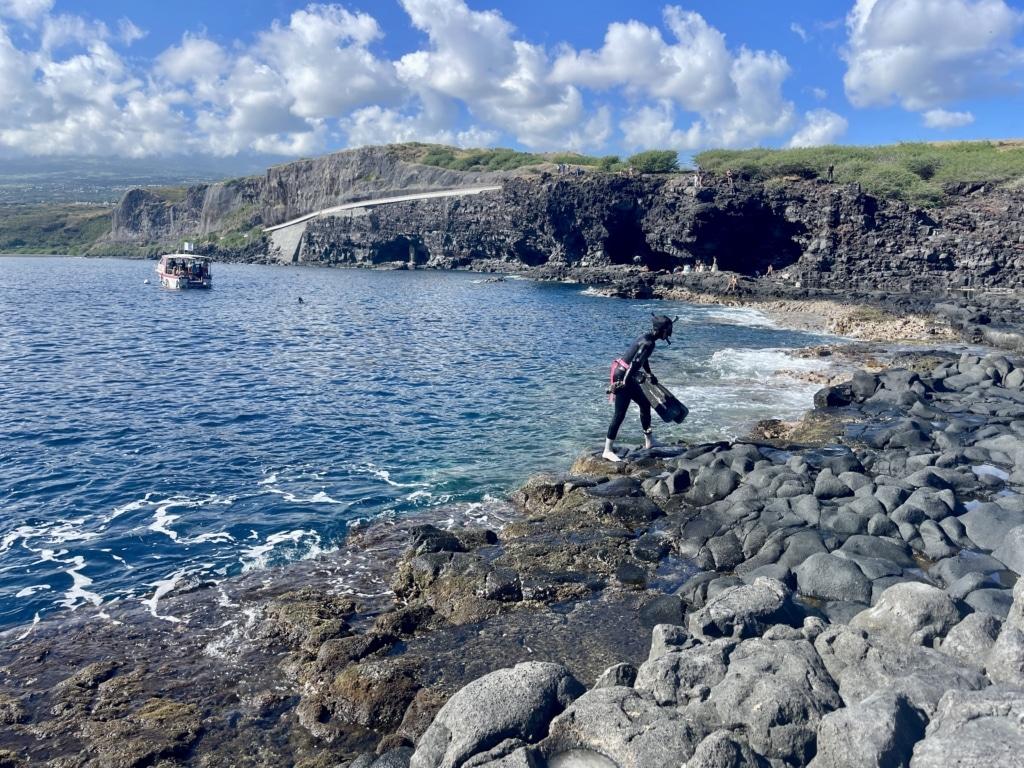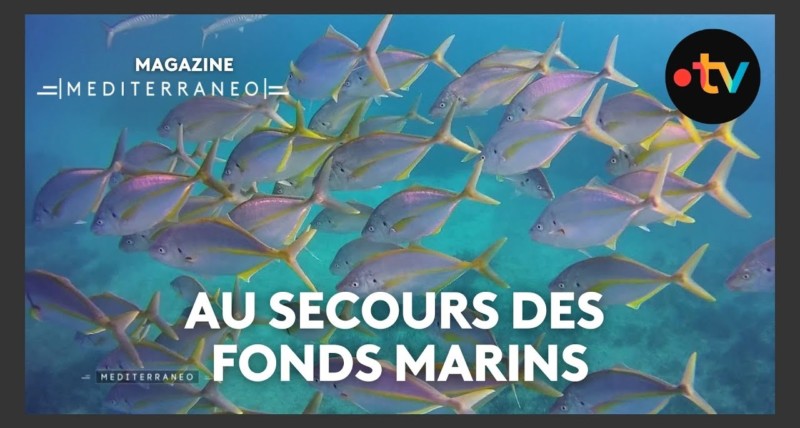Paradise under pressure
The beaches and natural cirques of Réunion Island, known for their stunning landscapes, are increasingly threatened by extreme weather events. Rising temperatures, combined with these phenomena, are putting marine ecosystems, beaches, and causing landslides at risk.
At Cap Lahoussaye, André, 28, wades out of the crystal-clear waters with tennis socks on his feet and pieces of fabric tangled in fishing line in his hands. “I come here several times a week to collect waste so that fish have a better habitat,” he explains.
Cap Lahoussaye is a popular stop for tourists for its views, diving, and snorkeling. With its paradisiacal beaches and natural cirques—valleys formed by water and wind erosion—Réunion attracts over 550,000 visitors each year. Eighty percent come from mainland France, 12% from the Indian Ocean region, and the rest from other European countries like Germany, Belgium, and Switzerland.
Tourism pressures
Even moderate tourism can impact Réunion’s fragile environment, including lagoons, rainforests, and endemic biodiversity. “We regularly see tourists walking on the corals in the lagoon,” laments Marie-Chantal Renardière of the protection association Les Dalons du Lagon. Environmental officers remind visitors not to trample or collect corals and to avoid sunscreen that harms them.
Extreme weather events
The cyclone Garance on 28 February caused massive mudslides in the lagoon, destroying at least 40 hectares of coral reefs in the western part of the island, according to Bruce Covin, coral reef specialist at the marine reserve. Mudslides carried debris including wood, plastic, tires, and fabric.
Urbanization exacerbates the problem, as construction and impermeable surfaces increase runoff, carrying waste and chemicals into the lagoon. This promotes algal growth, which can smother corals.
Coral bleaching and marine life
Early 2025 saw one of the largest coral bleaching events in 30 years, with at least 80% of corals affected. While not fatal, bleaching severely weakens corals, and repeated events could destroy these ecosystems. Rising water temperatures have also forced André to release 80% of his live aquarium captures due to parasite growth in warmer waters.
Some species, like loggerhead turtles, have benefited, finding ideal conditions for laying eggs on Réunion’s beaches. However, cetacean populations and fish farming are also affected by these temperature swings.
Rising seas and landslides
Sea-level rise threatens beaches such as Roches Noires, while landslides in the island’s cirques are becoming more frequent due to hotter summers and intense rainfall. On 5 August, a landslide blocked the trail to Piton de la Fournaise, a major tourist site.
Climate projections for Réunion suggest temperature rises of +1 to +3.5°C by 2100, along with decreased rainfall and sea-level increases of 30–50 cm (up to 1 meter if polar ice destabilizes).
The challenge ahead
Despite plans to nearly double annual visitors to one million, sustainable development must be prioritized. The combination of extreme heat, cyclones, and urban pressures threatens biodiversity, ecosystems, and tourism activities. Every fraction of a degree counts in the fight against climate change, and local action is crucial.



